|
This wonderful blog post from the School of Life (see below) talks about the problems with the technology-rich, instant-gratifying world we live in today. Steven Pinker believes that there is no better time to be alive and it’s really hard to disagree with him. People are living longer, they are healthier and have access to an abundance of resources that might seem like a fantasy to someone living just a few hundred years ago. Why is it then that our happiness hasn’t trended the same way as everything else? It turns out, unsurprisingly, that humans are complex creatures who cannot simply be won over with material possessions. The industrial revolution showed us early on that having the means of production and consumption rarely translate into immediate happiness for everyone. Factory workers felt exploited and resented the owners and managers for doing it even though they were making way more than on the farm. Things haven’t changed much since the industrial revolution. Most people still struggle with finding meaning in their jobs. Although we make more money and have more stuff, it just leads us to get more frustrated because WE SHOULD be happier, right? We have little to complain about and yet, here we are. To make matters worse, the internet now knows what you’re into and constantly reinforces your beliefs. It’s easy to get stuck in a loop seeing the things you believe constantly popping up on the screen. This is affectionately known as the Instagram effect (getting bombarded with pictures of beautiful people and places makes us feel ugly and boring). The answer to our modern problems might be found in the thinking of the ancient philosophers. Aristotle, Plato and the Stoics that followed them spent a large portion of their time thinking about Virtue (yes capital ‘V’ virtue) and the trouble with achieving it. The Stoics placed their bets with the virtues: Wisdom, Courage, Justice, and Self-Discipline. They believed that the way forward was through the self. Today it’s much easier to speak your mind with an attempt to change other people’s behaviours instead of blaming ourselves as the Stoics would suggest. Once you realize that you’re in control of your life (more than you realize), it becomes much easier to confront the challenges you face daily. Take time to write down your goals and your faults. Figure out what you can fix up in your life in the short term. Most importantly, make a concerted effort to be a little bit better than you were yesterday. The road to happiness isn’t through stuff - it’s through the management of yourself. Why the World is Broken For those of us lucky enough to live through the early 21st century, when unprecedented advancements in medicine, agriculture and technology have rendered many of the evils of the past obsolete, the question remains: why are we still so miserable? If, as the scientists and academics tell us, our present age is the best possible time to be alive, why do so many yearn to return to an imagined (and illusory) past, whilst others look ahead with horror at a chaotic and doom-laden future? Despite what the Panglossians* say, we are right to suspect that all is not right with the world. Along with its manifest benefits, modernity has created societal divisions and psychological strains that stem (ironically enough) from its leading, profoundly optimistic ideas: that life can be made perfect; that progress is inevitable; that everyone is equal and capable of greatness. When reality proves these false, the result is widespread rage, misery and a loss of hope. We should never seek to return to the conditions of the past, but we should try to reclaim some of its outlook - less hopeful, more fatalistic, but better suited to the vagaries of the present. Pavlov was the first to articulate the conditioning response to a stimulus. In his famous dog and bell experiment, Pavlov would ring a bell every time a dog was fed. After several weeks of doing this, he rang the bell without providing food to the dog. Low and behold, the dog came running with drool dripping everywhere expecting to be fed. It’s called classical conditioning and is one of the most famous psychological experiments ever done. Although we can chuckle at the poor dog for believing he was about to be fed, in reality, this type of conditioning impacts our lives more than we think.
Instead of trying to find spots in your life where classical conditioning exist, do the opposite - find the places where you do work where the reward is not immediately available. Fitness - do you workout every day even though the results may not present themselves in the short term? Art - do you write, paint, podcast or code even though the results don’t show immediately? Relationships - do you go out of your way to do something nice for someone important in your life even though they may not return the favour? Thanks to technology, our lives are filled with instant gratification. For some people, even opening the Amazon app is a form of classical conditioning because they immediately get bit by the consumer bug. App is open, time to buy things! Understanding that setting, struggling and accomplishing goals are the key factors in eudaimonia - a flourishing life - then you will quickly realize that the effort is just as important as the result. Short cuts do make life easier, but only if they assist us in a larger struggle. This article by Ryan Holiday from 2014 (over 4 years ago!) described the idea of how outrage culture was beginning to define modern media. Fast forward to today and call out culture - a synonym of outrage culture - is in full force.
The strange part about this culture is that it exists almost entirely on the internet. In your day-to-day life and you likely won’t interact with anyone who is violently opposed to your _______ (insert: gender, race, religion, political beliefs or a combo of all of them). Face-to-face we generally act civil to one another and interact with respect, dignity, and courtesy. Why does it all break down on the internet? Behind the virtual wall of our devices, we feel much more vocal because of the anonymity. Without the threat of physical repercussions (yelling, counter arguing and not just punching), we feel empowered to say what we think. However, the divide between real and virtual life is big. It appears there’s something else going on here. It’s the echo chamber of social media. Since anyone today can claim to be a news outlet, we’re being shown (polite way of saying it) information from politically biased sources. This would normally not be an issue without the internet because we could simply ignore it. However, if we follow a specific person on a social media platform like Twitter and they happen to forward one of these biased articles, we’re starting the trend towards the echo chamber. Us human beings are constantly on the lookout for acceptance and groupthink. It’s helped us stay safe for a long time and is genetically wired into our soul. When we see or hear someone of influence agree with our views it empowers to go forth and spread the word. It must be true, right? Combatting outrage There are two ways you can manage to survive in a world filled with outrage. One is to believe it and be as responsible as possible with the information you encounter. If you feel that a specific group is being targeted for some oppression then support the belief with data and evidence. There are plenty of scientific journals that study the interactions of human beings. Use credible research to back-up your viewpoint. Rage is never productive, especially in a debate. Focus on getting to the right answer instead of changing a person’s opinion. The second is to accept it. The world has never been safer, healthier and happier than today. The trend continues to push us towards utopia. Sure, you may have been dealt a poor hand in the world. Perhaps you have a sick family member or a disability. The good news is that there are many stories of people overcoming these disadvantages and living a healthy and productive life. Western civilization was formed on the tenants of Judeo-Christian values including truth, love, and courage. Part of these ideas is that a truly flourishing life requires sacrifice and hardships. Moving forward in spite of difficulties helps us grow and become the people we want to be. Regardless of how equitable we can make the world, it will never be perfect. Anyone can find something to be oppressed by. It’s how you deal with it that will make the world move forward or backward. Many of the great leaders in history seemed to have it all together when it mattered most. Churchill, when facing invasion against a superior army in the Germans, stood tall and proclaimed victory instead of defeat. He did so with stoicism, confidence, and courage. This act (which appears simple) not only rallied a nation in a dark time, it forced the Nazi’s to rethink their strategy.
Although Churchill appeared confident in public, it wasn’t so much the case in private. He often overthought his words when preparing speeches and became frustrated and angry easy when dealing with his friends and family. We all have the ability to appear polished like Churchill. But we first must conquer ourselves. Our desires, emotions, and nihilism hold us back from rising to the occasion when needed. It’s not that we must bury these negative traits, but instead have to learn to live with them. When they control us, we become weak and unreliable. In the bible St. Matthew writes in chapter 5 verse 5: Blessed are the meek, for they will inherit the earth. Here’s what is meant by meek: The meek.--The word so rendered was probably used by St. Matthew in its popular meaning, without any reference to the definition which ethical writers had given of it, but it may be worthwhile to recall Aristotle's account of it (Eth. Nicom. v. 5) as the character of one who has the passion of resentment under control, and who is, therefore, tranquil and untroubled, as in part determining the popular use of the word, and in part also explaining the beatitude. It means those who have the dragon but choose not to bring it out will inherit the earth. Like Churchill, you need to manage the demons inside you and move forward anyway. Do you practice surgery in your spare time? Probably not. To become a surgeon you need years of education and hours of practice. It makes sense that there are fewer surgeons in the world than baristas. When you require surgery you probably don’t ask the doctor for work samples or to speak with one of his former patients. You trust him because he’s earned it.
The same is probably true of the lawyer you hire. She’s a professional who has worked hard to get to the top of her firm. No need to go through a tender process. Trust is easy to establish because she’s a certified professional. The trouble is that for most of the jobs out there, professional certifications don’t require years of specialization. A teacher for example only requires a 3-year university degree and one year of college. Other jobs require almost no certification. Being a teacher, social media influencer, YouTube personality, website designer, and programmer are easy to do because there are very low barriers of entry. Many people feel like they’re at least somewhat capable of being successful at these jobs. This causes a big competition for those who are really trying to make a career out of it. With big competition comes less trust. As a customer, you have to be a little cautious hiring a photographer for your wedding because anyone with an iPhone can (rightly) claim to be a professional. To make things worse, automation and educational inflation are combining to erode the number of employment opportunities for university and college graduates. According to Gwynne Dyer’s latest book, by 2050 the unemployment rate could be as high as 40%. Jobs for highly specialized are becoming increasingly more competitive as education becomes more accessible. Getting a job as a doctor often meant just surviving medical school. With more and more students enduring the medical field, it is increasingly becoming more important to finish at the top of your class in order to separate yourself from the pact. If you don’t want to specialize, are you doomed? Not likely. Being able to separate yourself from the pack has always been a valuable skill. Now it’s essential. In Seth Godin’s book The Dip, he describes the process of becoming an expert as surviving ’the dip’. It’s that point where most people give up because it gets too expensive, it gets harder, or they lose interest. If you can focus on photography, get the correct equipment and simply outlast the others in the field you’ll be successful. The challenge is that the more people who are in the race, the more likely it is that some may also overcome the dip. Choose something you love, understand the difficulties of being successful at it and fight through the dip. Good luck! Martin Luther King, Gandhi, Joan of Arc, Jesus. What do these historic legends have in common? They all did the right thing. And it cost them everything.
We often assume that doing the right thing comes at less of a cost than taking the wrong route. We also wrongly assume that it should be rewarded. It’s no doubt that this belief is ingrained into our psyche. It’s been part of our lives since we were children. We’re always looking for the easy way to get to the end. Tattle tailing is something kids often use to solve problems. Getting an adult involved alleviates them from extra work to solve their own issues. Of course, we can’t expect children to address problems without first teaching them how to do it. Sometimes it doesn’t happen and the kids turn into adults and use others to solve their problems. The right way is hard. To be like MLK and Jesus, you need to embrace the difficulty that comes with doing the right thing. Complex problems cannot be solved through Twitter debates. If you can shut your phone off and forget about the problem, you’re likely not invested enough in it. If you really want to stop racism and corrupt capitalism, organize debates, protests and campaigns. However, be prepared that it might not work and could cost you everything. "This is what you deserve. You could be good today. But instead you choose tomorrow."
- Marcus Aurelius Most of use spend too much time in the past or the future instead of the present. Procrastination is the ultimate denial of the stoic - to assume that tomorrow will be better than today. Work never goes away, suffering does not diminish by relegating a task to another time and the sacrifice required to forgo pain for pleasure will never disappear. Eating healthy, making your bed and doing exercise are acts that can be done immediately and will not get easier if you put it off until the next day. Ignore the simple but difficult tasks in your life and small problems become big ones. You are what you deserve to be. The hero enters the dungeon, defeats the dragon, rescues the princess and collects the gold.
This is the classic story of the hero. You can play with the variables - a female lead, a mad scientist villain, save humanity - it really doesn’t matter. Every heroic story ever told follows this simple template. Hero’s appeal to our deepest beliefs because we fundamentally understand the journey to success - whether or not we can properly articulate it. The other side of success is often the result of sacrifice, suffering and encountering plenty of setbacks. If this is true, why is it that so many of us seek shortcuts to success? We’re a very resourceful species and we use our intelligence to circumnavigate difficult situations. If there’s an easier way to victory, why not take it? This of course, is not unique to humans. Apex predators in the animal kingdom are also very skilled at calculating the risk-reward of attacking prey. Lions will pick off the slowest and weakest in a herd even though the best meat is found in the biggest and strongest. The trouble with comparing ourselves to lions is that their strategies and tactics have remained the same for thousands of years. Humans, on the other hand, have created a complex society that requires careful calculation when it comes to tackling problems. If you attacked every issue with fists flying, you’d likely to burn out very quickly. The classic heroic story often pits the hero against one big problem, something that is not very realistic in today's world. The result is that we often underestimate the difficulty of achieving a goal because we have so many of them to achieve. Get good grades, eat healthy, maintain a positive reputation online. Stay active. We assume the effort to become a doctor, start a business or lose weight is much more difficult than it is. Our long-term thinking simply breaks down when we can’t see the top of the mountain. If the goal is so far away, why even try to attempt it? The heroic journey is about making an exerted effort to complete a goal, no matter the time, effort or risk that stands in the way. The real heroic reward comes with work. Professional work. Getting after it every day until the goal is achieved. If you want to get a promotion at work, you can’t keep doing the same thing you’ve always been doing and assume that it will fall into your lap. The dragon is simply not going to get out of the way. The NY Times recently wrote about the importance of being bored, especially for children. The most prolific line in the article mentions the endless battle of children and parents vs boredom.
"Nowadays, subjecting a child to such inactivity is viewed as a dereliction of parental duty." Our children today are viewed as an investment and one that is expected to deliver exponential returns. The more activities we put kids in, the more likely they’ll grow the skill set to be change makers in the world. The great paradox in this all is that when asked what they want to be when they grow up, most kids want to be famous or an assistant to someone famous. It seems as if all these extra circular activities aren’t as effective as we thought. On top of that, the massive scheduling of young people has lead to a rise in an inability to manage time properly (since it’s being organized for them) and solve problems. Even worse, many kids struggle with boredom. Their inability to make-up games in an unstructured environment greatly caps their creative potential. All of the great minds of history shared one thing in common - the ability to see something that wasn’t there before. These profound ideas were generated in an atmosphere of what would today be called “absolutely boring”. Einstein developed the theory of relativity as a patent clerk - literally one of the most boring jobs one could undertake at the time. The boredom allowed his brain to work on other meandering details that included nothing less than the absolute transformation of our view of the universe. Will boring our kids lead them to develop the next best explanation of dark matter? Unlikely, but we cannot discount the opportunity of creative thought that border brings. Design thinking will get your idea out quickly and efficiently. It will not, however, give you a fundamental paradigm shift. That comes with quiet thinking in a bored state. In his book “Can’t Hurt Me”, former Navy SEAL David Goggins asked himself this simple question when he was about to quit the most grueling, rigorous and notoriously dangerous military training on the planet - Hell week. As he watched dozens of men around him drop out and ring the famous ‘failure bell’, he asked himself ‘Why am I here?’ before making the decision to bail out.
Everything up to that moment had led him on the path towards becoming a Navy SEAL. He wasn’t about to quit because it got tough. He put himself in the situation and only he could get himself out. Quitting meant that everything he worked hard to achieve was for nothing. He challenged himself to push even harder through the pain and misery because this is exactly what he wanted. The rest is history. You don’t need to be a SEAL to use the same strategy when you encounter difficulties in your life. Many times our pain and misery are brought on by our own actions. Even when it seems like the universe is plotting against us, it’s easy to ask ourselves why we’re in the difficult situation in the first place. If you can find the why then you can dig deep and find the solution. The world today is quickly running in the other direction. It’s easy to find blame in other people or groups for your misfortunes. Paradoxically, it’s also the best time to be alive. The world has never been healthier, happier and freer. Opportunities to make a difference for yourself and others are everywhere. Next time you feel the cortisol boiling your blood, try not to immediately lay blame to others and simply ask yourself - Why are you here? How does one become a social media expert? There aren't any phD programs that specialize in mastering social media. Just like an electrician can only be certified after several hours of on the job training, expertise on almost anything can be established through experience.
Do social media experts have more experience with social media than the rest of us? Doubtful. It's difficult to be an expert a shoelace tying , bed-making or filling tanks of gas. These are things we all need to do and spending time becoming the 'expert' is irrelevant. Social media experts don't tweet better, hit the like button more efficiently or upload images more effectively than everybody else. Instead, they've created a label that holds no merit. That doesn't mean they are fraudulent, it just means that they've replaced the scientifically rigorous study of people's interactions in an online environment with an idea that you can become an expert without the hard work. Be wary of smoke and mirrors. If you're someone who is a self-proclaimed expert in anything, be sure that you have the experience, education or skill set to effectively navigate your craft. Why is it so difficult to get back into a routine after you’ve been sick, gone on vacation, had a celebration or simply taken a day or two off?
Breaking routine to do something enticing is both very normal and very easy to do. Our willpower to stick to a strict diet or workout routine is finite and erodes increasingly quickly in the face of easier, more alternative ways to do things. This is why people struggle to keep up with dieting over the holidays. Everywhere you go, there seems to be more sugar or alcohol. After you’ve binged on junk, it becomes way more difficult to get back on the diet wagon because our brains are naturally wired to celebrate a big feast or hard workout at the gym. During our tribal days, we would celebrate a big catch by having a feast and this singled to us that the hard physical labour to catch the prey and over the indulgence afterwards meant we weren’t going to starve and there was no hurry to get back to work. It’s the holidays, take a break from the diet or gym, right? Those people who are blessed with strong willpower can certainly afford to take breaks from diet and exercise to indulge once in a while because it’s easy to get back into the routines of a healthy lifestyle. For the rest us, we need to muster as much discipline as possible over the holidays because it becomes increasingly difficult to return to routines. The secret is to find a balance between enjoyment and lifestyle. For those who diet, intermittent fasting is a wonderful tool to maintain caloric intake while still being able to let loose at the company Christmas party. It’s important to keep on maintaining discipline when we encounter difficult times. It only serves to strengthen your resolve. And, if you do happen to fall off the wagon. Get back on. Most people feel like suffering is worth it because there’s a goal to be achieved. Weight loss is a great example. People starve themselves, eat strange foods and exercise to lose weight. The trouble is when they lose the weight and stop exercising and eating strange foods, the weight comes back. There is no end. Instead, you need to eat properly and exercise regularly (forever) to maintain a healthy body and mind.
Education falls into the same category. Study hard for the math test so you can get a good grade. Beware, there’s another math test around the corner. Of course, the tests end when you graduate to the working world, but they don’t really because the tests are replaced with the constant need to re-educate yourself. There is no end. Then why not embrace the struggle? Playing whack-a-mole with life's problems is exhausting, especially when there is no end. The interesting thing about suffering is that the more you embrace it the better you get at taking on more suffering. Real growth happens when you live in the suffering not when you live through it. Next time you’re taking on a problem with the goal of stamping it out, remember: There is no end. When you’re walking down a busy street and you see someone drop their phone, do you pick it up and give it back? What about seeing someone with a baby carriage struggle to open a door? Would you help?
Almost all of us would without hesitation, stop and help someone open a door or pick up a fallen item. The interesting question is: Why do we do it? Helping a fellow human-being with their daily struggle is an essential quality that has been carefully crafted into us through years of evolution. Being ultra-social beings, we must be able to help and support one another if we’re going to be successful as a society. Some of us believe that empathy is the driving force behind all of these courteous acts by strangers taking place every day throughout the world. Empathy is the emotional motivator that provides us with a hit of serotonin every time we cooperate or help. Oxytocin is also known as the bonding hormone. Mothers receive huge hits of oxytocin when their baby is born. It provides a euphoric feeling that helps reduce physical pain and increase the bond between her and the baby - which is a good thing because those early days of parenting aren’t easy! Here’s the trouble with empathy: it’s extremely biased. According to Paul Bloom, we must be very careful not to lead with empathetic feelings because we’ll have a tendency to support those most like us. While this might not seem like a bad idea, Bloom suggests looking at it in greater scope. For example, the Make-A-Wish Foundation spent over $10 000 on turning a terminally ill boy into Batman and parading him around the city in a Batmobile. No doubt it was a very special moment for the boy, his family, and the city. Empathy wins, right? Maybe. What if that money was used to purchase mosquito nets used to prevent the spread of malaria in Africa? Hundreds if not thousands of lives could have been saved. Where is the empathy in that endeavor? Instead of leading with empathy, we’re better to use reason and compassion when dealing with people in need. Compassion differs from empathy in that were not mapping the feeling of another individual on our own. Instead, we support and help one another because it’s the right thing to do. We should pick up the fallen phone because it will make that person’s day better not just because we’d want someone to do it if the rolls are reversed. It’s a subtle difference but an important one. ...is to understand that your job or career or goal requires you to keep showing up regardless of how you feel. Putting in your best effort each and every day will build the grit required to to great work. There must have been days when Michelangelo wasn’t jazzed about chipping away marble for hours at a time. He did it though and now we have David.
If you find yourself making the type of excuses that prevent you from showing up, then you may need to rethink your job or career or goal. Joint Task Force 2 (JTF2) is Canada’s version of the Navy Seals. They’re elite military operators whose skill sets range from training locals in the art of insurgent warfare to jumping out of planes behind enemy lines. They can fight in the desert, the arctic and under water. Unlike America’s special forces who can field highly specialized Navy Seals, Army Rangers, Green Berets, and Airforce Combat Controllers, the JTF2 are Canada’s only special force and need to be able to fight on land, sea and in the air, alone. Essentially, they’re the jack-of-all trades and they’re really good at what they do.
The challenge with being a one stop shop for national defence is that you can’t be an expert in everything. If you spend too much time training for underwater operations than you’re bound to miss out on important training for air insertion. So how does JTF2 train to be an effective fighting unit that is coherent in all areas of the battle space without being an expert in every area? Instead of being the best in one area, they learn to be really good in all areas. More importantly, they practice extreme flexibility. When they enter into dangerous combat zones, they’re acutely aware that they’re not experts in everything. They work together to minimize the risk and maximize success knowing that their skills may not be perfectly polished. This happens though detailed planning, having access to the best equipment possible and the understanding that failing to use their strengths is worse than overestimating their weaknesses. Extreme flexibility is a differentiating asset in a world where specialization is the norm. Kids are taught to be the best at a sport, a subject in school or an art. Nobody today is willing to settle for above average. The issue is that being above average at sports, school AND arts makes you far more versatile in a world of change than someone who has placed all their eggs in one basket. Understanding your strengths and embracing your weaknesses gives you the needed insight to perform in areas of unknown. The JTF2 prepare as best as possible but know that their strength lies in extreme flexibility. The next time you have the opportunity to participate in something you’re not an expert in, dive in guns blazing and embrace your weaknesses. It will only serve to make you extremely flexible. This is a photo of a young boy comforting his sister in her last moments of life. It's heart-wrenching to look at and even more difficult to discuss with someone. The father who published the photo didn't do it looking for some virtue singling. He wanted it to be a symbol of the fragility of life. The picture is meant to for us to reflect on what it means to exist. The photo is helps us to understand that we're finite and extremely vulnerable.
We all know this, yet it seems to be such a difficult task to spend time enjoying the small things in life: The first crest of sunlight on a warm spring morning, the laughter of children at play, a warm embrace from a loved one. Why is it that these moments seem to wash away quickly and are difficult to contemplate once they've disappeared? Us humans are not designed to be deep reflectors in life. We've evolved in a hostile environment where food scarcity, predator danger and disease lurked around ever corner. In the modern world, none of these threats are a real danger to us anymore. One can forgive our inability to medicate effectively on the value of life when we've spent most of it just trying to survive. When pictures like this roll through our social media feed, we need to recognize their value and take a moment to live in the present, to be thankful for whatever we have - big or small. Nobody really knows when this grand show will come to an end, but to live like it will last forever is perhaps the wrong approach. @davidgroggins is a master motivator because he offers one simple message: You have to suffer. The difference between someone who is motivated and someone who is driven is suffering. The person who just attended Tony Robbins latest seminar is motivated. They become driven once they put their plan into action. Change is never easy and it often takes a tremendous amount of suffering before things start to turn in your favour.
The difficulty we have as human beings isn't that we can't or won't suffer. It's that we assume that if we do put ourselves into a position of pain we should be rewarded for it. Got up early this morning to go for a jog? Great. That doesn't give you a free pass to gorge on donuts at lunch or put a sweaty selfie on Instagram. Suffering is an individual experience. Sure, you can suffer as a group or have someone feel sympathetic or even empathetic for you. At the end of the day, you're in control of your suffering. This is best demonstrated by Buddhist monks who live in a community, but meditate with their own thoughts. The meditating is done to aid the balance between joy and suffering so they can connect with it, experience it and ultimately be content with it. Suffering is an inevitable part of life. Embracing it, seeking it out and (yes) enjoying it will not take away from your life, only add to it. Get some! Ask the average person what they know about World War 2 and they’ll likely tell you about D-Day. Ask them to tell you something about D-Day and they’ll mention Juno or Omaha beach or the massive airborne drop that preceded the beach. Ask them about Juno beach and they’ll explain the difficulties getting off the ships and the fierce fight that took place. Keep it going and you’ll likely get to individual stories about solider’s actions that morning. We can uncover layers of events that took place in WW2 by drilling deeper and deeper.
What’s rarely ever talked about is the development and execution allied grand strategy ultimately ended the 3rd Reich. The entire plan took years to develop and required the strategic thinking that well beyond the immediate landings, but also included the drive towards Germany, the liberation of France and the low countries and the ultimate plan once Hitler had been disposed. Everything that happened from June 6th, 1944 onwards was the result of a massive strategic effort. All the battles, stories and hardships were directly related to the ability of the tactics to match the grand strategy of the war effort. Had the airborne effort on the night of June 5th failed to seize the correct bridges, the landings would have stalled on the beaches. If a fuel line hadn’t been laid under the channel, the tanks would have run out of gas. We can easily get caught up in the power of tactics over strategy in our daily lives. Rushing from to-do list time to to-do list item can make us feel productive. However, if paying your credit card off immediately after shopping at the mall doesn’t match with your grand strategy of saving money, it’s a fail. Same goes with work. If you can knock off every task your manager gives you, but you still feel unfulfilled, it’s a fail. It’s important to spend time mapping out a grand strategy for your life. It doesn’t need to have a time limit (WW2 didn’t), but it should have a clear outcome. Becoming a doctor, independently wealthy, owning a car or a house, getting in better shape and being more active in your community are all noble strategies. Write them down and every time you do something on your to-do list ask yourself if you’re moving towards or away from that goal. The allied Normandy strategy took longer than expected. They did finished it though. “Trust is difficult to gain and very easy to lose.”
- life There’s no better way to build your self-brand than by continuing to show up. Making promises and continuing to keep them will ALWAYS move the needle forward in any relationship. If you raise your hand and say yes to something, be sure to follow through to the bitter end. It is even better to do it without complaining or resentment or virtue signalling. When things get tough, the person who always follows through is most likely going to get the tap on the shoulder to do something about it. |
Time to reinvent yourself!Jason WoodScience teacher, storyteller and workout freak. Inspiring kids to innovate. Be humble. Be brave. Get after it!
|

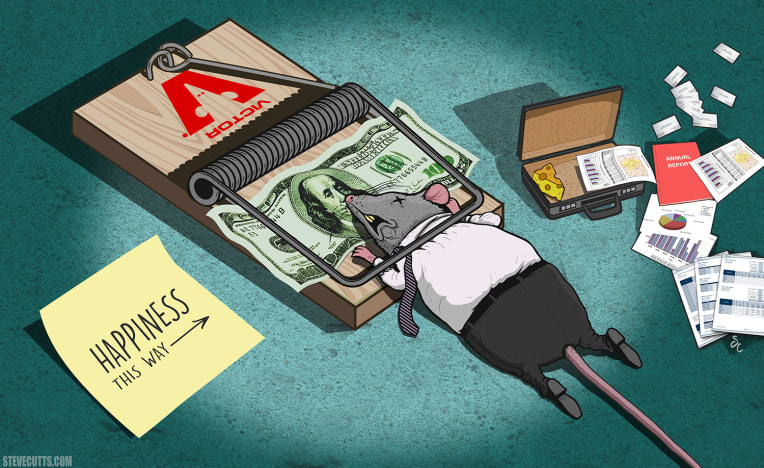
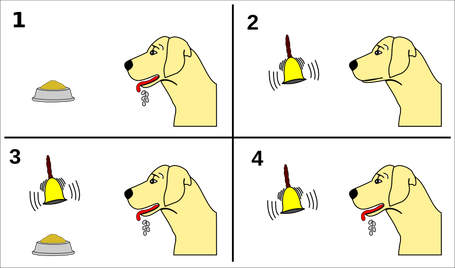
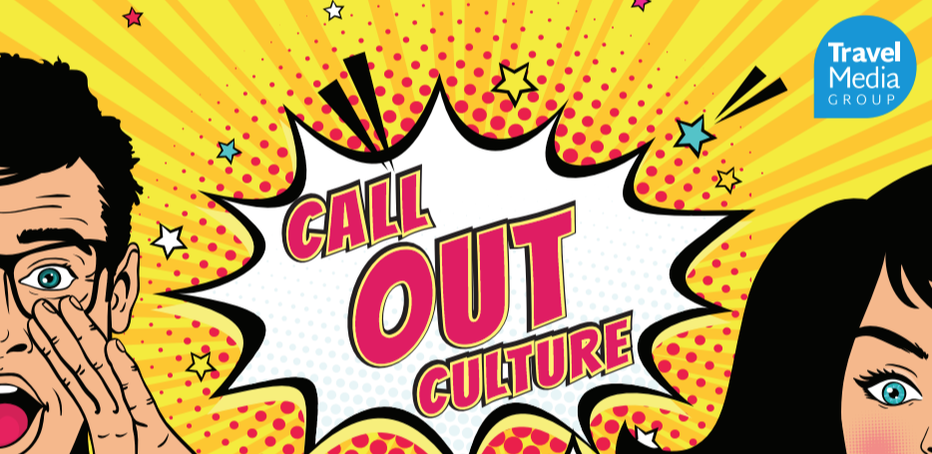
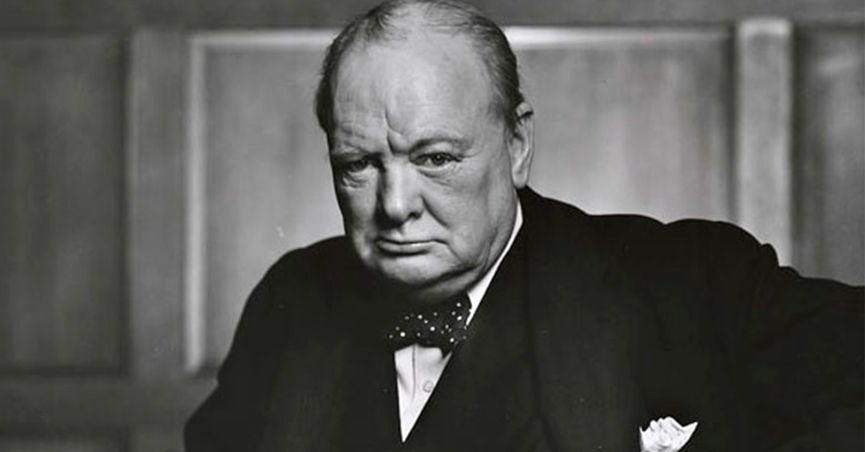


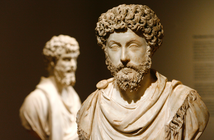
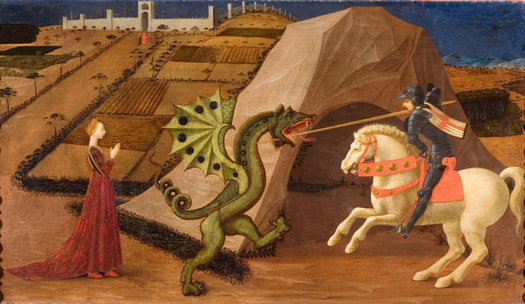

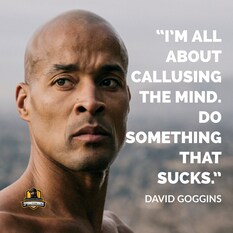


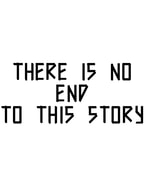
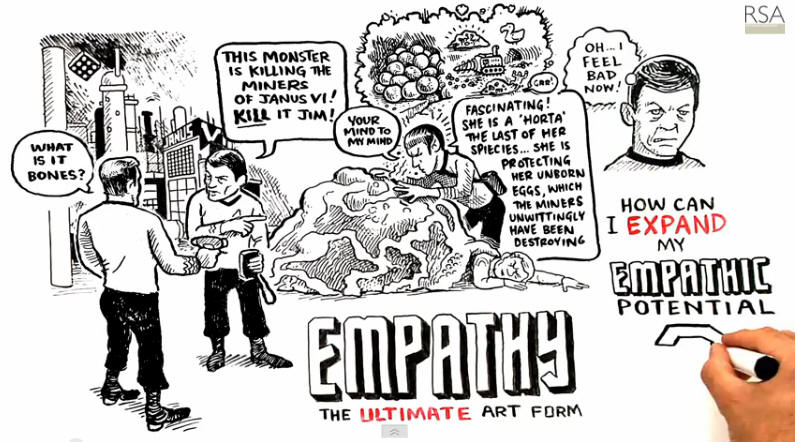



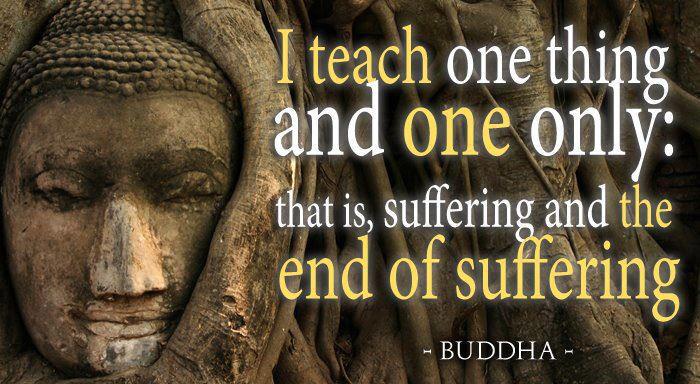






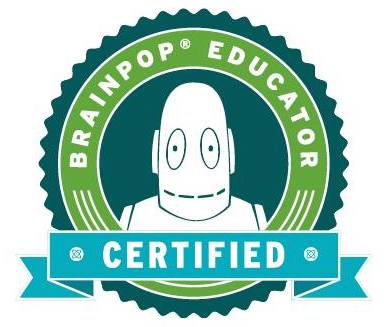
 RSS Feed
RSS Feed